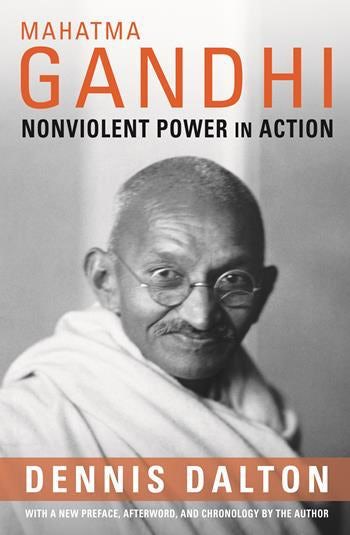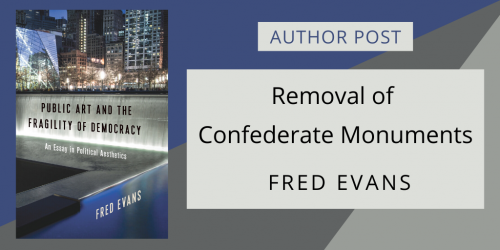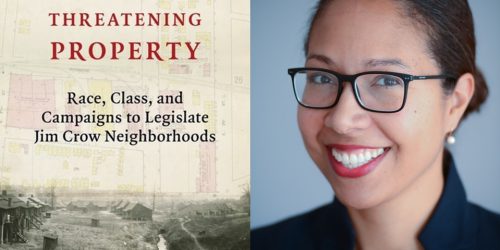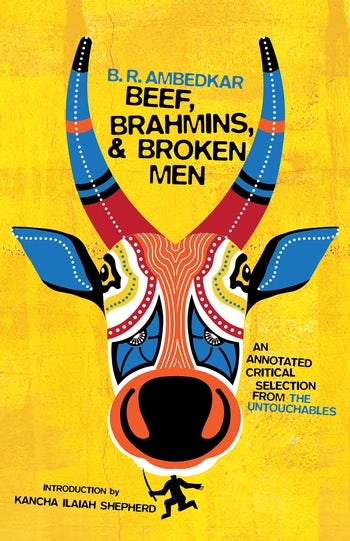Standing Up Against Injustice: Rethinking Resistance Efforts and Social Change

Social change comes about through the efforts of those who stand up and fight back against injustice. As we witness a groundswell of activism, we offer this selection of books chronicling and analyzing past and present moments of resistance in the hope that they help inform and encourage today’s movements. These books explore the thinking and acting of participants in social movements, particularly the African American freedom struggle, from Mississippi to Hollywood and from the campus to the streets. They show how both big ideas and ordinary people’s willingness to take action are essential to making progress toward equality.
Struggle on Their Minds
The Political Thought of African American Resistance
Alex Zamalin
Struggle on Their Minds shows how the core values of the American political tradition have been continually challenged—and strengthened—by antiracist resistance, creating a rich legacy of African American political thought that is an invaluable component of contemporary struggles for racial justice.
To Fulfill These Rights
Political Struggle Over Affirmative Action and Open Admissions
Amaka Okechukwu
In To Fulfill These Rights, Amaka Okechukwu offers a historically informed sociological account of the struggles over affirmative action and open admissions in higher education. Through case studies of policy retrenchment at public universities, she documents the protracted—but not always successful—rollback of inclusive policies in the context of shifting race and class politics.
A Piece of the Action
Race and Labor in Post–Civil Rights Hollywood
Eithne Quinn
In A Piece of the Action, Eithne Quinn reveals how Hollywood catalyzed wider racial politics, through representation on screen as well as in battles over jobs and resources behind the scenes. Based on extensive archival research and detailed discussions of films like In the Heat of the Night, Sweet Sweetback’s Baadasssss Song, Super Fly, Claudine, and Blue Collar, this volume considers how issues of race and labor played out on the screen during the tumultuous early years of affirmative action.
Black Utopia
The History of an Idea from Black Nationalism to Afrofuturism
Alex Zamalin
In Black Utopia, Alex Zamalin offers a groundbreaking examination of African American visions of social transformation and their counterutopian counterparts. Considering figures associated with racial separatism, postracialism, anticolonialism, Pan-Africanism, and Afrofuturism, he argues that the black utopian tradition continues to challenge American political thought and culture.
The Freedom Schools
Student Activists in the Mississippi Civil Rights Movement
Jon N. Hale
Based on dozens of first-time interviews with former Freedom School students and teachers and on rich archival materials, this remarkable social history of the Mississippi Freedom Schools is told from the perspective of those frequently left out of civil rights narratives that focus on national leadership or college protestors. Hale reveals the role that school-age students played in the civil rights movement and the crucial contribution made by grassroots activists on the local level.
The Black Power Movement and American Social Work
Joyce M. Bell
Relying on extensive archival research and oral history interviews, Joyce M. Bell follows two groups of black social workers in the 1960s and 1970s as they mobilized Black Power ideas, strategies, and tactics to change their national professional associations. Comparing black dissenters within the National Federation of Settlements (NFS), who fought for concessions from within their organization, and those within the National Conference on Social Welfare (NCSW), who ultimately adopted a separatist strategy, she shows how the Black Power influence was central to the creation and rise of black professional associations.
Mahatma Gandhi
Nonviolent Power in Action
Dennis Dalton
Dennis Dalton’s classic account of Gandhi’s political and intellectual development focuses on the leader’s two signal triumphs: the civil disobedience movement (or salt satyagraha) of 1930 and the Calcutta fast of 1947. Dalton clearly demonstrates how Gandhi’s lifelong career in national politics gave him the opportunity to develop and refine his ideals.
American Resistance
From the Women’s March to the Blue Wave
Dana R. Fisher
American Resistance traces activists from the streets back to the communities and congressional districts around the country where they live, work, and vote. Using innovative survey data and interviews with key players, Dana R. Fisher analyzes how Resistance groups have channeled outrage into activism, using distributed organizing to make activism possible by anyone from anywhere, whenever and wherever it is needed most.
A Time to Stir
Columbia ’68
Edited by Paul Cronin
With more than sixty essays from members of the Columbia chapter of Students for a Democratic Society, the Students’ Afro-American Society, faculty, undergraduates who opposed the protests, “outside agitators,” and members of the New York Police Department, A Time to Stir sheds light on the politics, passions, and ideals of the 1960s. Moving beyond accounts from the student movement’s white leadership, this book presents the perspectives of black students, who were grappling with their uneasy integration into a supposedly liberal campus, as well as the views of women, who began to question their second-class status within the protest movement and society at large.
Categories:African American / Black StudiesAmerican HistoryPhilosophyReading List
Tags:A Piece of the ActionA Time to StirAlex ZamalinAmaka OkechukwuAmerican ResistanceBlack HistoryBlack UtopiaDana R. FisherDennis DaltonEdited by Paul CroninEithne QuinnJon N. HaleJoyce M. BellMahatma GandhiStruggle on Their MindsThe Black Power Movement and American Social WorkThe Freedom Schoolsto fulfill these rights








